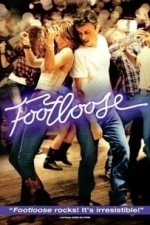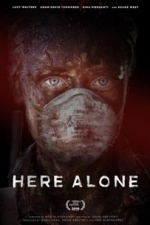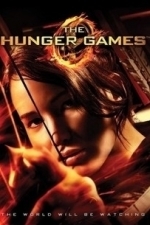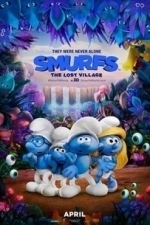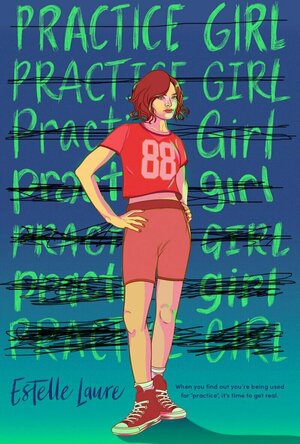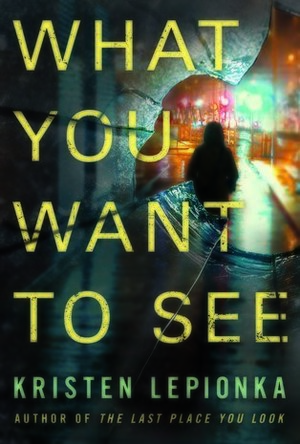Search
ArecRain (8 KP) rated Wolf Tales (Wolf Tales #1) in Books
Jan 18, 2018
This is the worst piece of trash I have ever read. I have read better smut on Literotica.
It was like Douglas tried to take something that was taboo (bestiality) and make it okay. She failed. HARD. Not only did she manage to write about bestiality, but rape, too. Within the first ten page of the book, the lead female wakes up in the dark to have sex with some naked wolfman stranger she can't even see and then goes on to make him let her live with him where they continue to have more sex for about 2 week. Apparently that's enough to fall in love with someone and not care about life anymore. Not only that, but the reason sex is so fantastic with him is because he has the penis of a DOG, knot and all, which she begs him to keep. Meanwhile, our little wolfman is lusting after the sorcerer who exposed him all to this, actually wanting the man to pretty much rape the wolfman (which isn't really rape since he wants it). Upon meeting the sorcerer, the wolfman is then "raped" by the sorcerer while the sorcerer is a wolf.
I stopped reading there.
In all the 76 pages that I read, the bestiality wasn't actually what made me hate this book. There was such an utter lack of plot line that this book couldn't even be considered a guilty pleasure book. I felt as if Douglas was trying to create plot line to explain the random sex that seemed to happen every chapter. Douglas also manipulated the characters responses and inner dialogue to make it seem as if their own feelings and thoughts conflict with what they really desire. The characters know that what they are doing is taboo, yet they still want to be raped by a wolf or have sex with a man with a dog penis.
Unfortunately for Douglas, the fact that she took something so socially taboo and tried to pass it off as an erotic novel without creating a realistic reason why any of it was happening made this book not only painful to read, but also near impossible to finish.
And before you bash me for not even finishing the book, I will tell you that I did read more than just the 76 pages. I know all about the Chanku and how the novel ends. I just couldn't force myself to read this piece of utter garbage in whole.
It was like Douglas tried to take something that was taboo (bestiality) and make it okay. She failed. HARD. Not only did she manage to write about bestiality, but rape, too. Within the first ten page of the book, the lead female wakes up in the dark to have sex with some naked wolfman stranger she can't even see and then goes on to make him let her live with him where they continue to have more sex for about 2 week. Apparently that's enough to fall in love with someone and not care about life anymore. Not only that, but the reason sex is so fantastic with him is because he has the penis of a DOG, knot and all, which she begs him to keep. Meanwhile, our little wolfman is lusting after the sorcerer who exposed him all to this, actually wanting the man to pretty much rape the wolfman (which isn't really rape since he wants it). Upon meeting the sorcerer, the wolfman is then "raped" by the sorcerer while the sorcerer is a wolf.
I stopped reading there.
In all the 76 pages that I read, the bestiality wasn't actually what made me hate this book. There was such an utter lack of plot line that this book couldn't even be considered a guilty pleasure book. I felt as if Douglas was trying to create plot line to explain the random sex that seemed to happen every chapter. Douglas also manipulated the characters responses and inner dialogue to make it seem as if their own feelings and thoughts conflict with what they really desire. The characters know that what they are doing is taboo, yet they still want to be raped by a wolf or have sex with a man with a dog penis.
Unfortunately for Douglas, the fact that she took something so socially taboo and tried to pass it off as an erotic novel without creating a realistic reason why any of it was happening made this book not only painful to read, but also near impossible to finish.
And before you bash me for not even finishing the book, I will tell you that I did read more than just the 76 pages. I know all about the Chanku and how the novel ends. I just couldn't force myself to read this piece of utter garbage in whole.
Carma (21 KP) rated Bad Reputation (Bad Bachelors, #2) in Books
Jun 17, 2019
Bad Reputation by Stefanie London is the first book Ive read by this author after meeting her briefly at a reader event in June 2018. Bad Reputation is the 2nd book in this series but not having read the first one before diving into this one hasnt really affected my enjoyment of this novel. The theme of the first 2 books centers around an app called Bad Bachelor, which essentially allows people to rate and review dates online. The first book set the stage for this continuation of story with Wes being the target of reviews online.
Wes is the son of famous dance parents. He has lived in the world of ballet and dance his entire life. He wants to break free of his family name and legacy and start something on his own, he leaves the family business much to the chagrin of his very opinionated mother. He comes up with an idea for an off-off broadway show that will engage the audience right into the middle of the show. Now all he needs are investors and a star dancer for the female lead. With a website posting reviews about his manhood threatening to derail any hope of funding he needs to find a way to get his show off the ground.
Remi is an ex ballerina currently living in New York teaching ballet class at her friends studio. She has dream of opening her own studio now that her career in the dance world looks to be over. A chance meeting at one of her parent/kid classes has her reconsidering giving up on her dream. But can she put her past mistakes behind her and not head down the same ruining road of disaster.
I really enjoyed the dynamic of Wes and his mother, his father was pretty much talked about not actually to during this novel. Wes was trying his hardest to show his mother that he can make it on his own, without being a disappointment to the family name, while waiting for her to dish out an I told you so.
I wasnt sure I liked the gossip articles, review blurbs etc that were at the beginning of each new chapter. At the beginning they were very distracting, but as the story went on they really added to and became part of the story. I received an advance copy from the publishers without any expectation for review. Any and all opinions expressed are solely my own. I cant wait to read many more books from Stefanie London, starting with Bad Bachelor (Book 1 in this series)
Wes is the son of famous dance parents. He has lived in the world of ballet and dance his entire life. He wants to break free of his family name and legacy and start something on his own, he leaves the family business much to the chagrin of his very opinionated mother. He comes up with an idea for an off-off broadway show that will engage the audience right into the middle of the show. Now all he needs are investors and a star dancer for the female lead. With a website posting reviews about his manhood threatening to derail any hope of funding he needs to find a way to get his show off the ground.
Remi is an ex ballerina currently living in New York teaching ballet class at her friends studio. She has dream of opening her own studio now that her career in the dance world looks to be over. A chance meeting at one of her parent/kid classes has her reconsidering giving up on her dream. But can she put her past mistakes behind her and not head down the same ruining road of disaster.
I really enjoyed the dynamic of Wes and his mother, his father was pretty much talked about not actually to during this novel. Wes was trying his hardest to show his mother that he can make it on his own, without being a disappointment to the family name, while waiting for her to dish out an I told you so.
I wasnt sure I liked the gossip articles, review blurbs etc that were at the beginning of each new chapter. At the beginning they were very distracting, but as the story went on they really added to and became part of the story. I received an advance copy from the publishers without any expectation for review. Any and all opinions expressed are solely my own. I cant wait to read many more books from Stefanie London, starting with Bad Bachelor (Book 1 in this series)
Gareth von Kallenbach (980 KP) rated Footloose (2011) in Movies
Aug 7, 2019
Public dancing is against the law in the small religious town of Bomont. But Boston-raised teenager, Ren McCormack and the Reverend’s daughter Ariel have other ideas in this remake of the 1984 classic.
The original “Footloose” requires a 1980s mindset and was successful partially due the disjointed storytelling of teen films during that era. Up until now it could be said that there is no “Footloose” without Kevin Bacon. But surprise! The remake is so good that you may need to step back.
The cast is more polished than the original, particularly in lead female role of Ariel Moore brought back to the screen by Julianne Hough. Hough’s performance is more engaging than that of the original portrayal by Lori Singer. Taking the reigns of the role that made Kevin Bacon famous is Kenny Wormald as city boy Ren. Wormald wears the role with charm and the required “Footloose” too-cool-for-school style.
Reverend Shaw Moore, now played by Dennis Quaid, is far more emotional than the original depiction of the character first played by a John Lithgow. However, the same cannot be said for his wife, Vi Moore, with a disappointing performance from Andy McDowell. This is balanced however by the truly enjoyable portrayal of Ren’s best friend Willard by the well-timed comedy of Miles Teller.
Yes, there were cheesy moments. There was even a sunset so over the top that it may remind you Star Wars buffs of a certain lengthy romance scene in Episode Two. And yes, more than one of the reanimated lines from the classic film was forced. But the flubs were few and far between as this “Footloose” remake manages to succeed in many places where the original could have been improved.
The explanation of tragedy that originally befell Bomont has been extended, giving the town’s anti-dance perspective a little more sway. And this time around “Footloose” directly addresses a number of the small town versus big city stereotypes with strong dual sided humor.
The new “Footloose” still has less dancing then you want from a film entirely about dance, but when it does occur the style is much more diverse, ranging from hip hop to that famous “Footloose” country. There were things missed from the original; particularly the precision of Bacon’s solo dance scene, but this remake honors the impact of the original while standing on its own.
Now where do you buy a pair of red cowboy boots?!
The original “Footloose” requires a 1980s mindset and was successful partially due the disjointed storytelling of teen films during that era. Up until now it could be said that there is no “Footloose” without Kevin Bacon. But surprise! The remake is so good that you may need to step back.
The cast is more polished than the original, particularly in lead female role of Ariel Moore brought back to the screen by Julianne Hough. Hough’s performance is more engaging than that of the original portrayal by Lori Singer. Taking the reigns of the role that made Kevin Bacon famous is Kenny Wormald as city boy Ren. Wormald wears the role with charm and the required “Footloose” too-cool-for-school style.
Reverend Shaw Moore, now played by Dennis Quaid, is far more emotional than the original depiction of the character first played by a John Lithgow. However, the same cannot be said for his wife, Vi Moore, with a disappointing performance from Andy McDowell. This is balanced however by the truly enjoyable portrayal of Ren’s best friend Willard by the well-timed comedy of Miles Teller.
Yes, there were cheesy moments. There was even a sunset so over the top that it may remind you Star Wars buffs of a certain lengthy romance scene in Episode Two. And yes, more than one of the reanimated lines from the classic film was forced. But the flubs were few and far between as this “Footloose” remake manages to succeed in many places where the original could have been improved.
The explanation of tragedy that originally befell Bomont has been extended, giving the town’s anti-dance perspective a little more sway. And this time around “Footloose” directly addresses a number of the small town versus big city stereotypes with strong dual sided humor.
The new “Footloose” still has less dancing then you want from a film entirely about dance, but when it does occur the style is much more diverse, ranging from hip hop to that famous “Footloose” country. There were things missed from the original; particularly the precision of Bacon’s solo dance scene, but this remake honors the impact of the original while standing on its own.
Now where do you buy a pair of red cowboy boots?!
Charlie Cobra Reviews (1840 KP) rated Here Alone (2017) in Movies
Jul 7, 2020 (Updated Oct 29, 2020)
Unexpectedly Engaging But Ultimately Disappointing For A Zombie
Contains spoilers, click to show
Man, I can't believe what a let down this movie wound up being when it had so much potential. It started off really strong and I like Ann (Lucy Walters) and thought she was a strong female lead/protagonist. She demonstrated early on the extremes she puts herself through to ensure her survival such as covering her naked body with a mixture of scat and mud to cover her scent, cutting herself to collect blood and use as bait to lure zombies away, and collecting her urine to douse herself with incase any zombies follow her back to her camp. She's shown rationing her food and scavenging maggots for protein, and keeping two camp sites incase one is lost. Even when she ventures out to get supplies, the moment she hears zombies, she doesn't wait to see them, she stops what she's doing and gets moving. What killed me with this film was that it was so slow building and wound up being nothing but dialogue. The flashbacks intrigued me, because I was interested in her backstory since it showed she wasn't always alone and had a husband and baby. But nothing ever happened even when she chose to help these strangers who she didn't know and house them in her camp and give them food. For more than an hours of the film there is probably only 1 minute of zombies. It's not until the last 15-20 minutes of the movie does it get good when Chris's daughter Olivia betrays her on a raid and knocks her out and ties her up, and screams to attract zombies before leaving her to die. It was already hinted at that Olvia didn't really like Ann as much as she was pretending to or that she was getting jealous of Chris and her relationship so this wasn't even a big of surprise as it shoud have been but it was a little shocking. I did like how when Ann goes to help them when she gets free that she forgets to grab more ammunition and has to chose who she will help survive. I thought that was very believable and a good final twist especially since she chooses Olivia who tried to kill her. Still everything in this movie could have been summed up in an epsiode of The Walking Dead and been better action wise if not as good drama wise but close. I still give this movie a 3/10.
LoganCrews (2861 KP) rated The Hunger Games (2012) in Movies
Sep 20, 2020 (Updated Nov 26, 2020)
One of the most clueless things I've ever seen, as painstakingly unintelligent as it is one-dimensional and blunt. My problem isn't so much that every YA movie from then until at least 2018 cribbed from it (and for the most part, did it better lol) mercilessly until they left nothing left to this one but its picked-clean carcass - but moreso with the fact that it does only a couple steps above the bare minimum. How awesome would this have been as a Battle Royale-style, anti-fascist bloodbath where a bunch of kids are picked at random and exposed to both the elements and a shit-ton of weapons in a 𝘛𝘳𝘶𝘮𝘢𝘯 𝘚𝘩𝘰𝘸-esque battlefield commentated by a flamboyant Stanley Tucci and Toby Jones? But no, fuck that right? Instead we get a garbage-looking, shakycam exercise in going through the motions with bad characters and toothless action (wasps? most of the characters dying offscreen? are you kidding me?). Plus we're treated to another awful forced romance, dull-arrowed swipes at classism which amount to nothing more than overtly-obvious visual signifiers with nothing to actually chew on (I assume out of cowardice - which makes it worse), and one of the most infamous cases of vaguely misogynistic attempts at a 'strong female lead' by making her mean and stripped of any actual personality. Somehow it doesn't really drag, but it's pretty viciously unexciting. There's some real bite to the scenes where Katniss's every expression let alone word is picked apart by a capricious crowd and disingenuous MC, and Haymitch painfully watching the rich children play with the toy sword - though not only does it refuse to dive into the treasure trove of possible commentary it sets up, but I actually have to apologize to the (worlds better) 𝘋𝘪𝘷𝘦𝘳𝘨𝘦𝘯𝘵 for goofing on its idiotic politics because this is somehow even dumber. "We want to make sure there's never another uprising again, show we're a gracious + caring government, and entertain the public all at once. How do we do that? Well we'll just start abducting and killing children at random on national television of course!" Lmfao. Doesn't lean into anything that could have made this enjoyable, and there's a lot - so they had to have *tried* to make it this flat. Also one of those movies that only knows how to express its limited emotion through unbearable "everything sucks" world-building. Great... that would be another thing entirely if it even earned the right to do that, which naturally this doesn't. Cheesy and unintentionally funny.
Gareth von Kallenbach (980 KP) rated Smurfs: The Lost Village (2017) in Movies
Jul 12, 2019
Rewind back to the 80s, what was every kid doing Saturday mornings? Watching TV and catching up on their latest Smurfs’ adventure; running from the clutches of the evil wizard Gargamel. Who’s only purpose was to catch the Smurfs steal their powers and become the most powerful wizard in the world. I couldn’t help but feel a bit of nostalgia back to my childhood while watching this movie.
The film centered around Smurfette, the only female Smurf, and her struggle to find her place in Smurf Village. Smurfette was not born a Smurf. Gargamel used his magic to turn a piece of clay into Smurfette. His intent was to have his creation, Smurfette, lead him to Smurf village and capture all the Smurfs. Fortunately, Papa Smurf had his own magic and used it to turn Smurfette from evil to good.
Fast forward to present Smurf-day, Smurfette (Demi Lovato) tries her best to fit in, but ultimately has a serious identity crisis. So what does one do when they can’t figure out who they are? They go in search of their own identity. Along the way, Smurfette crosses paths with a strange creature. Eager to find out who this creature is, against Papa Smurf”s request, Smurfette decides to enter the Forbidden Forest. An area no Smurf has even been allowed to visit. She is joined by her brothers Brainy, Clumsy, and Hefty-who unfortunately end up in Gargamel’s clutches. Gargamel (Rainn Wilson) uses his magic and finds out the there is another Smurf village, one that lies beyond the Forbidden Forest. Knowing the damage they have caused, Smurfette and her brothers trek has now changed into a rescue mission. They must reach the lost village before Gargamel and his cat, Azrael and warn the villagers of his evil plan. Who are these villagers? Hmm….
You don’t have to watch the first 2 Smurf films to understand what this one is about. They are completely different storylines and this one is 100% animation. A full return to the tone and characteristics of the beloved 80s cartoon. From the comedic gestures to the close escape from Gagamel, the movie provides loads of entertainment. It tugs at the heartstrings because we’ve all experienced self doubt. It does brush on moments of girl power and of course there are musical dance numbers. Really all the Smurfy fans that enjoyed the Smurfiness of yester-year Smurfs, will definitely find this movie the Smurftastic.
The film centered around Smurfette, the only female Smurf, and her struggle to find her place in Smurf Village. Smurfette was not born a Smurf. Gargamel used his magic to turn a piece of clay into Smurfette. His intent was to have his creation, Smurfette, lead him to Smurf village and capture all the Smurfs. Fortunately, Papa Smurf had his own magic and used it to turn Smurfette from evil to good.
Fast forward to present Smurf-day, Smurfette (Demi Lovato) tries her best to fit in, but ultimately has a serious identity crisis. So what does one do when they can’t figure out who they are? They go in search of their own identity. Along the way, Smurfette crosses paths with a strange creature. Eager to find out who this creature is, against Papa Smurf”s request, Smurfette decides to enter the Forbidden Forest. An area no Smurf has even been allowed to visit. She is joined by her brothers Brainy, Clumsy, and Hefty-who unfortunately end up in Gargamel’s clutches. Gargamel (Rainn Wilson) uses his magic and finds out the there is another Smurf village, one that lies beyond the Forbidden Forest. Knowing the damage they have caused, Smurfette and her brothers trek has now changed into a rescue mission. They must reach the lost village before Gargamel and his cat, Azrael and warn the villagers of his evil plan. Who are these villagers? Hmm….
You don’t have to watch the first 2 Smurf films to understand what this one is about. They are completely different storylines and this one is 100% animation. A full return to the tone and characteristics of the beloved 80s cartoon. From the comedic gestures to the close escape from Gagamel, the movie provides loads of entertainment. It tugs at the heartstrings because we’ve all experienced self doubt. It does brush on moments of girl power and of course there are musical dance numbers. Really all the Smurfy fans that enjoyed the Smurfiness of yester-year Smurfs, will definitely find this movie the Smurftastic.
Gareth von Kallenbach (980 KP) rated Miss Sloane (2016) in Movies
Jul 12, 2019
Elizabeth Sloane (Jessica Chastain) is one of the most sought-after lobbyists in Washington, D.C. In Miss Sloane, she represents clients on both domestic and international issues ranging from environment and ecological concerns like palm oil to more volatile topics as 2nd Amendment issues.
At a point, Elizabeth sees a crossroads on the horizon and leaves her prestigious firm to take up the fight for gun control with a much smaller firm with less resources, money, and personnel. She is not necessarily “fighting the good fight,” rather, she wants to prove that she can win.
Winning, to her, is all that matters. It matters more than the issues and clients she represents. It matters more than any relationships that she could foster throughout her career. Winning, and her legacy as a winner, is what matters.
The film is a simple approach to something that is sorely needed in the film world outside of the realm of sci-fi: a strong female lead character. Elizabeth is a cut throat lobbyist who is focused on her end goal. In pursuing her outcomes, she sees people as obstacles that she must either maneuver around or go through.
She presents an image that she is a cold, calculating megalomaniacal individual. When behind closed doors, the audience is able to see who she really is: human. Elizabeth finds herself stuck in a world of deception, power, and money. She doesn’t know how to escape in one piece. In fact, she doesn’t know how to escape. Her identity is wrapped up into her profession.
Her reputation is what draws people in and keeps others at bay. When she undergoes a congressional hearing about regulations violations, she finds out how easily this empire that she built could crumble down, or, at least, that is what she lets others think.
The film is strong in its approach to a world that much of the audience is only familiar with during election years as candidates rail against lobbying or are exposed for their close connections to these organizations.
It is not overly ambitious nor does it dumb down the material and dialogue to offer a sense of “universal appeal.” The intrigue will keep audiences fully focused on speculating as to what her next move will be in trying to outmaneuver everyone who seems to be opposed to her.
Her rivals, as well as the audience, will be captivated to the end. Miss Sloane is a political thriller that rivals films like All the President’s Men and The Candidate. It doesn’t disappoint.
At a point, Elizabeth sees a crossroads on the horizon and leaves her prestigious firm to take up the fight for gun control with a much smaller firm with less resources, money, and personnel. She is not necessarily “fighting the good fight,” rather, she wants to prove that she can win.
Winning, to her, is all that matters. It matters more than the issues and clients she represents. It matters more than any relationships that she could foster throughout her career. Winning, and her legacy as a winner, is what matters.
The film is a simple approach to something that is sorely needed in the film world outside of the realm of sci-fi: a strong female lead character. Elizabeth is a cut throat lobbyist who is focused on her end goal. In pursuing her outcomes, she sees people as obstacles that she must either maneuver around or go through.
She presents an image that she is a cold, calculating megalomaniacal individual. When behind closed doors, the audience is able to see who she really is: human. Elizabeth finds herself stuck in a world of deception, power, and money. She doesn’t know how to escape in one piece. In fact, she doesn’t know how to escape. Her identity is wrapped up into her profession.
Her reputation is what draws people in and keeps others at bay. When she undergoes a congressional hearing about regulations violations, she finds out how easily this empire that she built could crumble down, or, at least, that is what she lets others think.
The film is strong in its approach to a world that much of the audience is only familiar with during election years as candidates rail against lobbying or are exposed for their close connections to these organizations.
It is not overly ambitious nor does it dumb down the material and dialogue to offer a sense of “universal appeal.” The intrigue will keep audiences fully focused on speculating as to what her next move will be in trying to outmaneuver everyone who seems to be opposed to her.
Her rivals, as well as the audience, will be captivated to the end. Miss Sloane is a political thriller that rivals films like All the President’s Men and The Candidate. It doesn’t disappoint.
Ali A (82 KP) rated Practice Girl in Books
May 24, 2022
Jo always seems to fall fast for boys - boys who, for some reason, don’t fall for her. One night at a party, she hears why - the boys who are on the wrestling team she manages, consider her a girl who’s good enough to hook up with, but not someone to date, aka, a “practice girl”.
After hearing those two words, Jo feels a lot of things - hurt, angry, ashamed, betrayed… but overall, she refuses to let those words define who she is. As she works on herself and her relationships, Jo begins to unpack and find out more uncomfortable truths about herself and her connections with all those around her. And in doing so, helps her understand her real worth.
I loved the authentic voice of Jo. I was a bit worried when I first started the book, not really knowing how a YA novel was going to handle the topic of sex. But, after reading the first few chapters, I was very interested in Jo’s story, and my mind changed.
My father was killed in a work accident when I was 12 (3 days into my 7th grade school year), and in the past, I have wondered what has done towards male relationships for me… This book had what I felt like an authentic take on a high school girl’s insecurities and vulnerabilities involving boys and relationships during that time. High school is hard enough as it is, a death of a parent sure doesn’t make it any easier.
I absolutely loved Jo’s rekindling with Leah and making friends with Jen and Amber. The talk those four had about boys and relationships while sitting around in a circle was exactly what Jo needed and allowed for multiple viewpoints that I don’t feel like are seen or heard about often in YA (like a lot of stuff, it’s getting more and more common though!)
I’m also super proud of Jo for her stance in her relationship with Sam at the end of the book. They both had stuff they needed to figure out and kudos for her to kind of force him to acknowledge that.
Overall, I enjoyed this YA novel about reputation, double standards, relationships, and empowerment. I recommend it to those who like contemporary novels that have a strong female lead, who learns lessons that I believe are important for young girls to hear.
*Thank you Bookish First and Viking Penguin for a copy of this book in exchange for an honest review
After hearing those two words, Jo feels a lot of things - hurt, angry, ashamed, betrayed… but overall, she refuses to let those words define who she is. As she works on herself and her relationships, Jo begins to unpack and find out more uncomfortable truths about herself and her connections with all those around her. And in doing so, helps her understand her real worth.
I loved the authentic voice of Jo. I was a bit worried when I first started the book, not really knowing how a YA novel was going to handle the topic of sex. But, after reading the first few chapters, I was very interested in Jo’s story, and my mind changed.
My father was killed in a work accident when I was 12 (3 days into my 7th grade school year), and in the past, I have wondered what has done towards male relationships for me… This book had what I felt like an authentic take on a high school girl’s insecurities and vulnerabilities involving boys and relationships during that time. High school is hard enough as it is, a death of a parent sure doesn’t make it any easier.
I absolutely loved Jo’s rekindling with Leah and making friends with Jen and Amber. The talk those four had about boys and relationships while sitting around in a circle was exactly what Jo needed and allowed for multiple viewpoints that I don’t feel like are seen or heard about often in YA (like a lot of stuff, it’s getting more and more common though!)
I’m also super proud of Jo for her stance in her relationship with Sam at the end of the book. They both had stuff they needed to figure out and kudos for her to kind of force him to acknowledge that.
Overall, I enjoyed this YA novel about reputation, double standards, relationships, and empowerment. I recommend it to those who like contemporary novels that have a strong female lead, who learns lessons that I believe are important for young girls to hear.
*Thank you Bookish First and Viking Penguin for a copy of this book in exchange for an honest review
Kristy H (1252 KP) rated What You Want To See (Roxane Weary #2) in Books
May 10, 2018
The Roxane Weary mystery series is straight-up great!
Roxane Weary is hired by Arthur Ungless, owner of a print shop, to track his fiance, Marin, whom he believes is cheating on him. But her case devolves quickly, between a bounced check and Tom (Roxane's dad's former partner) and a rude cop named Sanko showing up on Roxane's doorstep with the news that Marin is dead. Not only that, they make it pretty clear that they want Roxane to stay out of it. But this is "pathologically nosy" Roxane we are talking about. Stay out of it she cannot. So Roxane continues to work Arthur's case--as the husband, he's the main suspect after all. Roxane is determined he's innocent: a perspective not shared by Tom and Sanko. As she digs deeper into Marin's life, she discovers that she led quite the double life, and Roxane finds herself lost in a world of antiques dealing, wealthy families, and a lot of danger.
I loved this book. I love the first person aspect. The Roxane Weary series is straight-up great mystery writing. No unreliable narrator, no chapters that alternate POV or time periods, no gimmicks--just an excellent protagonist and a strong plot. It makes you long for mysteries of old (think Kinsey Millhone). The ways I love Roxane cannot truly be enumerated--she's a female lead in a mystery series, for one. She's smart, witty, and sarcastic. She's bisexual, but this characteristic is just who she is, not her main defining element or the entire defining point of the novel. As a bisexual female, I cannot stress how amazing this is in literature. To have bisexual representation (and have that representation be intelligent, funny, and not portrayed as evil and deviant), well, it's wonderful. She has relationships of all kinds and works on figuring out herself, just like any other person. Gasp! Imagine that. I couldn't love Roxane more (or Kristen Lepionka for creating this character). Also, Roxane calls waffles "golden beauty" and well, what more do you need in your PI? She's the Leslie Knope of private investigators.
I was worried that the second Roxane Weary novel wouldn't stand up to the first, but I was anxious for no reason. The second book is just as wonderful and intricately crafted as the first, and we get to see Roxane both struggling and growing professionally and personally. The case is a great one--it had me frantically reading and totally shocked me at the end, which I love. So rarely can a detective novel keep me guessing to the anymore. Marin Strasser is quite the character, and her web of lies pulls in a whole host of supporting characters.
We also see Roxane navigating new territory with Tom, her former lover (and, as mentioned, her dad's ex-partner), and get appearances again from the appealing Weary brothers and Roxane's mom. Roxane is still working on her relationships--not just romantic ones, but life ones, and you'll be touched as she figures out trying to be a "surrogate aunt" to Shelby, who appeared in book one. Watching her let her guard down at times is enjoyable.
The case is still mainly the star, though, and it won't disappoint. It's complicated and intriguing and everything comes together in ways that will make you gasp and keep you riveted. I was definitely shocked several times while reading. Not to mention I love it when an author can write a character that I truly hate--you know they've done a good job when you can feel that anger viscerally through the pages!
Overall, I have nothing bad to say about this book. Maybe that it's over, and I have to wait now for a (hopeful!!) book three? I love Roxane. I feel kinship toward her for sure, this sarcastic, bisexual PI whose still navigating the world around her. The mystery in this book won't disappoint, nor will the characters. If you haven't read the first Roxane Weary novel, I do recommend reading it first (mostly because it's also so good), but this will stand on its own. Highly recommend!!
I received a copy of this novel from the publisher and Netgalley in return for an unbiased review. More at http://justacatandabookatherside.blogspot.com/.
I loved this book. I love the first person aspect. The Roxane Weary series is straight-up great mystery writing. No unreliable narrator, no chapters that alternate POV or time periods, no gimmicks--just an excellent protagonist and a strong plot. It makes you long for mysteries of old (think Kinsey Millhone). The ways I love Roxane cannot truly be enumerated--she's a female lead in a mystery series, for one. She's smart, witty, and sarcastic. She's bisexual, but this characteristic is just who she is, not her main defining element or the entire defining point of the novel. As a bisexual female, I cannot stress how amazing this is in literature. To have bisexual representation (and have that representation be intelligent, funny, and not portrayed as evil and deviant), well, it's wonderful. She has relationships of all kinds and works on figuring out herself, just like any other person. Gasp! Imagine that. I couldn't love Roxane more (or Kristen Lepionka for creating this character). Also, Roxane calls waffles "golden beauty" and well, what more do you need in your PI? She's the Leslie Knope of private investigators.
I was worried that the second Roxane Weary novel wouldn't stand up to the first, but I was anxious for no reason. The second book is just as wonderful and intricately crafted as the first, and we get to see Roxane both struggling and growing professionally and personally. The case is a great one--it had me frantically reading and totally shocked me at the end, which I love. So rarely can a detective novel keep me guessing to the anymore. Marin Strasser is quite the character, and her web of lies pulls in a whole host of supporting characters.
We also see Roxane navigating new territory with Tom, her former lover (and, as mentioned, her dad's ex-partner), and get appearances again from the appealing Weary brothers and Roxane's mom. Roxane is still working on her relationships--not just romantic ones, but life ones, and you'll be touched as she figures out trying to be a "surrogate aunt" to Shelby, who appeared in book one. Watching her let her guard down at times is enjoyable.
The case is still mainly the star, though, and it won't disappoint. It's complicated and intriguing and everything comes together in ways that will make you gasp and keep you riveted. I was definitely shocked several times while reading. Not to mention I love it when an author can write a character that I truly hate--you know they've done a good job when you can feel that anger viscerally through the pages!
Overall, I have nothing bad to say about this book. Maybe that it's over, and I have to wait now for a (hopeful!!) book three? I love Roxane. I feel kinship toward her for sure, this sarcastic, bisexual PI whose still navigating the world around her. The mystery in this book won't disappoint, nor will the characters. If you haven't read the first Roxane Weary novel, I do recommend reading it first (mostly because it's also so good), but this will stand on its own. Highly recommend!!
I received a copy of this novel from the publisher and Netgalley in return for an unbiased review. More at http://justacatandabookatherside.blogspot.com/.
This book takes a Biblical viewpoint of how the modern woman can lead the best life she can attain while still following the guidelines of the Bible and living up to her personal potential. It uses the personal examples of the two authors, as well as the examples of numerous others that these two have interacted with over the course of writing the book. A systematic approach is taken to break down the history, statistics, and advantages of the modern woman before studiously approaching the Biblical model of the female.
One of the main focuses of the book is the Biblical mandate to "be fruitful and multiply" and how modern culture has both minimized and scorned this. The authors also focus on the differences between males and females, as well as their different purposes in life. Marriage is also a central theme in the book, with the authors providing lots of advice, as well as suggestions to study other resources, in order to find a husband and maintain a healthy marriage.
To stress certain points throughout the book, the authors provide a visual illustration of the concepts discussed. They summarize the lessons taught in certain sections in a "Wise Steps" box, and they fill the book with sections that invite the reader to journal his own thoughts according to a certain topic.
What I found the most interesting about the book was how the authors broke down the multiple purposes of any woman into three categories: our purpose as humans (Core Callings), our purpose as women (Feminine Callings), and our purpose as unique individuals (Personal Callings). Each of these are further broken down, with the Core Callings having the most emphasis throughout the book: Leave and Cleave, Be Fruitful and Multiply, and Subdue and Rule.
I had a difficult time getting through this book, partly because I felt that some of the information provided simply did not apply to me and I did not find it particularly useful. I did agree with most of what the authors interpreted from Biblical scriptures, though I disliked the broad usage of many different Biblical translations. As with any Biblically-based self-help book, the Bible should be the first source and the book should be secondary. I also felt that Feldhahn used the book somewhat as a self-promotional tool, since she often refers to her previously-written book, For Women Only: What You Need to Know about the Inner Lives of Men.
All the same, I appreciated the Biblical perspective and the support of marriage-minded women and stay-at-home moms. There is much wisdom in the pages of this book.
One of the main focuses of the book is the Biblical mandate to "be fruitful and multiply" and how modern culture has both minimized and scorned this. The authors also focus on the differences between males and females, as well as their different purposes in life. Marriage is also a central theme in the book, with the authors providing lots of advice, as well as suggestions to study other resources, in order to find a husband and maintain a healthy marriage.
To stress certain points throughout the book, the authors provide a visual illustration of the concepts discussed. They summarize the lessons taught in certain sections in a "Wise Steps" box, and they fill the book with sections that invite the reader to journal his own thoughts according to a certain topic.
What I found the most interesting about the book was how the authors broke down the multiple purposes of any woman into three categories: our purpose as humans (Core Callings), our purpose as women (Feminine Callings), and our purpose as unique individuals (Personal Callings). Each of these are further broken down, with the Core Callings having the most emphasis throughout the book: Leave and Cleave, Be Fruitful and Multiply, and Subdue and Rule.
I had a difficult time getting through this book, partly because I felt that some of the information provided simply did not apply to me and I did not find it particularly useful. I did agree with most of what the authors interpreted from Biblical scriptures, though I disliked the broad usage of many different Biblical translations. As with any Biblically-based self-help book, the Bible should be the first source and the book should be secondary. I also felt that Feldhahn used the book somewhat as a self-promotional tool, since she often refers to her previously-written book, For Women Only: What You Need to Know about the Inner Lives of Men.
All the same, I appreciated the Biblical perspective and the support of marriage-minded women and stay-at-home moms. There is much wisdom in the pages of this book.


